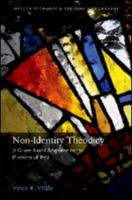Non-Identity Theodicy
A Grace-Based Response to the Problem of Evil
Abstract
This book develops Non-Identity Theodicy as an original response to the problem of evil. It begins by recognizing that horrendous evils pose distinctive challenges for belief in God. To home in on these challenges, this book constructs an ethical framework for theodicy by sketching four cases of human action where horrendous evils are either caused, permitted, or risked, either for pure benefit (i.e. a benefit that does not avert a still greater harm) or for harm avoidance. This framework is then brought to bear on the project of theodicy. The initial conclusions drawn impugn the dominant structural approach of depicting God as causing or permitting horrors in individual lives for the sake of some merely pure benefit. This approach is insensitive to relevant asymmetries in the justificatory demands made by horrendous and non-horrendous evil and in the justificatory work done by averting harm and bestowing pure benefit. Next this book critiques Fall-based theodicies that depict God as permitting or risking horrors in order to avert greater harm. The second half of this book develops a theodicy that falls outside of the proposed taxonomy. Non-Identity Theodicy suggests that God allows evil because it is a necessary condition of creating individual people whom he desires to love. This approach to theodicy is unique because the justifying good recommended is neither harm-aversion nor pure benefit. It is not a good that betters the lives of individual human persons (for they would not exist otherwise), but it is the individual human persons themselves.
Keywords
Problem of Evil, Theodicy, Non-Identity Problem, Metaphysics of Harm, Horrendous Evil, Marilyn Adams, Robert Adams, Free Will Defense, Derek Parfit, Goodness of GodDOI
10.1093/oso/9780198864226.001.0001Publisher
Oxford University PressPublisher website
https://global.oup.com/Publication date and place
Oxford, 2020Classification
Philosophy of religion
Ethics and moral philosophy
Christianity
Theology
Religious ethics


 Download
Download Web Shop
Web Shop